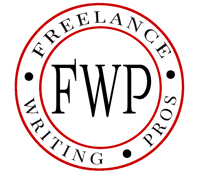
When you’re looking for freelance writing jobs, you might rule out small businesses up front. Bigger clients have bigger budgets after all. Right?
Even though this is advice I’ve often seen experienced freelancers give, it simply isn’t true — not as a standard.
While it’s true larger clients sometimes pay writers more, a client’s budget for a freelance writer often doesn’t have anything to do with their size. Let’s explore a few reasons for that.
Budget Allocation and Segmentation
The larger a company is, the better the chance it’s segmented into departments. That means the budget is also segmented with a certain amount allocated to each department’s needs.
A huge company might have a lot of money in the bank. But that doesn’t mean that money on the table for the department interested in your freelance writing services. Department heads might have to fight for the budgets they have, making some less inclined to consider pro-level rates reasonable.
Smaller and mid-sized businesses, on the other hand, often let you work directly with leadership.
They’re in a better position to make budgetary adjustments when necessary. And they can approve changes if they need to without going through a complicated company hierarchy.
Their company budget for hiring freelancers might very well be larger than the budget of a small department in a larger business.
Expected Return on Investment (ROI)
You also have to consider each specific project and the clients’ target customers (or other end goals). Let’s use the example of software companies.
A large software company might be looking for someone to write copy to promote a new app they’ve released. This app sells for $.99.
A small, very niche-specific, software company sells enterprise-level software to larger corporate clients to the tune of $10k.
Which do you think is more likely to pay professional-level freelance writing rates to attract a top notch copywriter?
Even if both clients are expecting to gross a similar amount, the smaller client needs their copy to make a much bigger impact. In most cases it’s far easier to convert on a $.99 sale than a $10k sale, and clients know that.
The client selling enterprise software has the potential of allocating a bigger budget to copywriting. That’s because they need someone with a proven track record of conversions for similar markets, and that kind of expertise comes at a premium.
Also consider how long it will take a client to see a return on their investment.
After paying thousands of dollars on copywriting to sell that $.99 app, it might take a while for the client to realize a return, especially if they don’t have a built-in audience ready to buy.
On the other hand, a single sale of that enterprise software might be enough to see a return on hiring you. Clients are going to consider both the end game and how long it might take for them to see a positive ROI.
By knowing what customers expect and showing that your writing will bring them a return (and preferably soon), you can turn smaller clients into bigger-budget prospects with the right pitch.
Project Scale
Larger companies also tend to be the ones hiring many freelance writers at once.
For example, while a small business might look to hire one freelance blogger, a large company looking to publish massive amounts of content quickly might hire 10, 20, 30, or more. Some hire hundreds.
While the larger company has the bigger overall budget for their project, it breaks down to each freelancer earning much less than they would by taking on several smaller clients.
Content mills are great examples of this because they don’t account for pro-level rates alongside the quantity of articles they want.
It becomes a quantity vs quality game. They can afford to screw up and try to clean up the mess later.
A small business owner probably can’t, and that makes them more likely to allocate a proper budget up front to get the highest quality work they can afford.
None of this is to say you should ignore larger companies and publications when seeking new freelance clients. Rather, the point is that you shouldn’t ignore smaller prospects under the assumption that they can’t afford to pay the professional freelance writing rates you’re looking for. Pursue a few, and you might just be surprised by the budgets these smaller companies are willing to commit.
And please, don’t discourage newer freelance writers from pursuing these highly-profitable opportunities just because you haven’t yet figured out how to find high-paying small business clients of your own.
This post was originally published on February 13, 2014 at All Freelance Writing. It has since been updated for Freelance Writing Pros readers.
